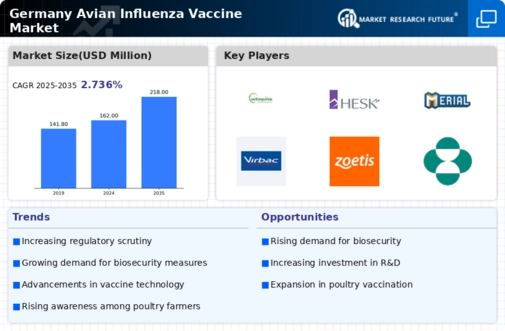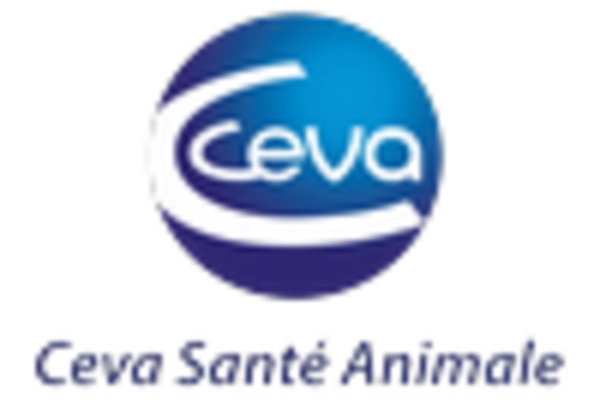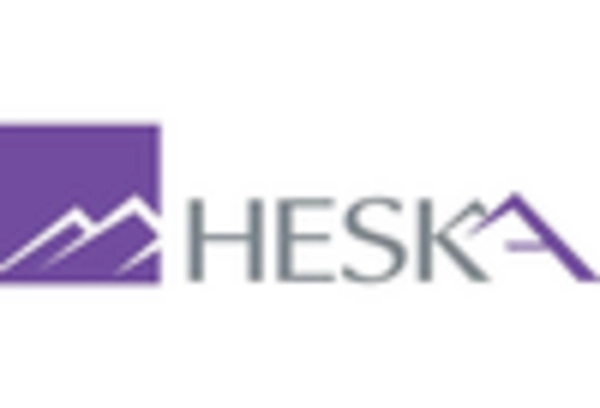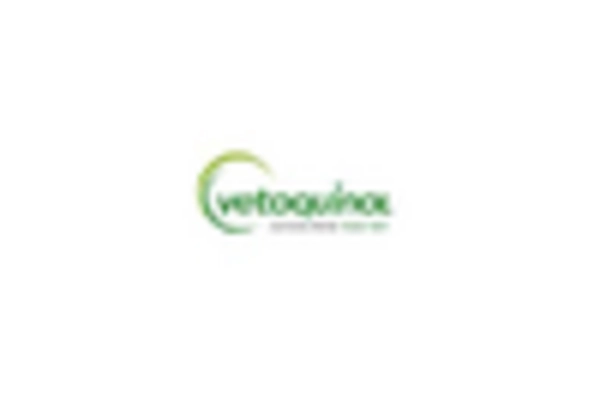Rising Avian Influenza Incidence
The avian influenza-vaccine market is experiencing growth due to the increasing incidence of avian influenza outbreaks in poultry across Germany. Reports indicate that the number of outbreaks has surged, leading to heightened awareness among poultry farmers and the government regarding the necessity of vaccination. In 2024, the German government reported a 30% increase in confirmed cases compared to previous years, prompting a proactive approach to vaccination. This trend is likely to drive demand for vaccines, as farmers seek to protect their flocks and minimize economic losses. The avian influenza-vaccine market is thus positioned to expand as stakeholders prioritize biosecurity measures and vaccination programs to combat the disease.
Government Initiatives and Funding
Government initiatives aimed at controlling avian influenza outbreaks are significantly influencing the avian influenza-vaccine market. The German government has allocated substantial funding to support vaccination campaigns and research into more effective vaccines. In 2025, it is estimated that funding for avian influenza control measures will reach €50 million, reflecting a commitment to safeguarding poultry health. These initiatives not only enhance vaccine accessibility but also encourage innovation within the avian influenza-vaccine market. As a result, the collaboration between government bodies and vaccine manufacturers is expected to yield advanced vaccine formulations, further driving market growth.
Consumer Demand for Safe Poultry Products
The avian influenza-vaccine market is also being propelled by rising consumer demand for safe and healthy poultry products. As awareness of food safety issues increases, consumers are becoming more discerning about the origins of their food. This trend is particularly pronounced in Germany, where consumers are willing to pay a premium for poultry products that are certified free from avian influenza. Consequently, poultry producers are incentivized to implement vaccination programs to ensure the health of their flocks. The avian influenza-vaccine market is thus likely to benefit from this shift in consumer behavior, as producers invest in vaccines to meet market expectations.
International Trade Regulations and Compliance
The avian influenza-vaccine market is significantly influenced by international trade regulations and compliance requirements. Germany, as a key player in the European poultry market, must adhere to stringent regulations regarding the import and export of poultry products and vaccines. Compliance with these regulations is essential for maintaining market access and ensuring the safety of poultry products. In 2025, it is anticipated that new regulations will be introduced, further shaping the landscape of the avian influenza-vaccine market. As a result, vaccine manufacturers may need to adapt their products and processes to meet these evolving standards, potentially driving innovation and market growth.
Technological Advancements in Vaccine Development
Technological advancements in vaccine development are playing a crucial role in shaping the avian influenza-vaccine market. Innovations such as recombinant vaccines and mRNA technology are being explored to enhance vaccine efficacy and reduce production times. In Germany, research institutions are collaborating with pharmaceutical companies to develop next-generation vaccines that can provide broader protection against various strains of avian influenza. These advancements may lead to more effective vaccination strategies, thereby increasing the overall market potential. The avian influenza-vaccine market stands to gain from these developments, as improved vaccines could lead to higher adoption rates among poultry farmers.

















